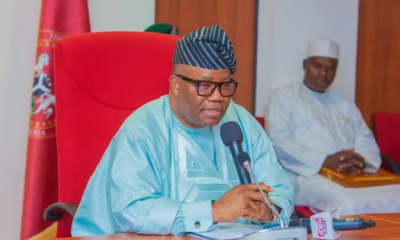The Central Bank of Nigeria has explained why Nigerians will no longer be able to access foreign exchange for the importation of any form of textile materials henceforth.
At a parley with textile industry operators in Abuja on Tuesday, CBN Governor, Godwin Emefiele, said the restriction would rejuvenate the textile industry in Nigeria and ensure that the needed growth is actualised.
“Accordingly, all FOREX dealers in Nigeria are to desist from granting any importer of textile material access to forex in the Nigerian Foreign Exchange market.
“In addition, we shall adopt a range of other strategies that will make it difficult for recalcitrant smugglers to operate banking business in Nigeria. The details of those strategies will be unfolded in due course,” the governor said.
According to Emefiele, smuggling would be dealt with seriously to discourage importation of textiles and force sellers of textile and garments to buy from Nigerian producers.
“You know the CBN does not carry guns, arms or have to be at the border posts but we know what we will do to make it difficult for those smugglers to bring in those things into Nigeria and we will unfold those to you.
“So when we make it difficult for them to smuggle those things into the country, it opens the market for you so that those who would have gone to buy those things will be forced to come to you.
“That is one economic solution that I see and since the government itself has already signed an executive order, that will compel everyone to flow in your direction,” he said.
The CBN Governor however disclosed that the bank would support the importation of cotton lint for use in textile factories, with a condition that such importers shall begin sourcing all their cotton needs locally beginning from 2020.
In an effort to encourage the textile industry, Emefiele announced that the bank would support local growers of cotton to enable them to meet the needs of the textile industry in Nigeria and also support efforts to source high yield cotton seedlings to ensure the yields from Nigeria’s cotton farmers met global benchmarks.
This is aside the provision of financial support to textile manufacturers with the provision of funds at single digit rate to refit, retool and upgrade their factories.
This, he said, was for them to be able to produce high quality textile materials for local and export market.

 Inspirational1 week ago
Inspirational1 week ago
 Featured6 days ago
Featured6 days ago
 Crime6 days ago
Crime6 days ago
 Featured6 days ago
Featured6 days ago
 Business5 days ago
Business5 days ago
 Editorial3 days ago
Editorial3 days ago
 Business2 days ago
Business2 days ago
 Featured2 days ago
Featured2 days ago

